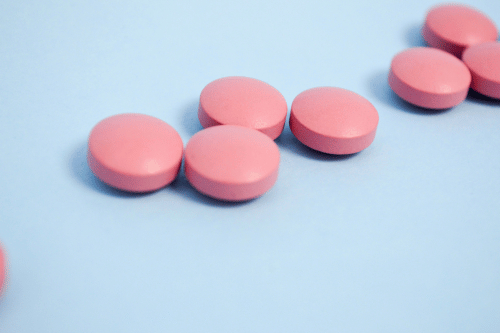Dangers of Mixing (Quetiapine) Seroquel and Alcohol: A Comprehensive Guide
Mixing alcohol and Seroquel (Quetiapine), a potent antipsychotic medication, is a combination fraught with severe and potentially life-threatening consequences. This detailed exploration will cover the risks, effects, and reasons why combining these two substances is highly dangerous. For those struggling with mental health conditions and alcohol consumption habits, understanding these risks is crucial for maintaining health and safety.
What is Seroquel (Quetiapine)?
Seroquel Explained
Seroquel, generically known as Quetiapine, is an antipsychotic medication primarily used to treat mental health conditions, including bipolar disorder, major depressive disorder, and schizophrenia. It belongs to a class of drugs called atypical antipsychotics, which work by altering the actions of certain chemicals in the brain. These changes help alleviate symptoms such as hallucinations, mood swings, and severe anxiety.
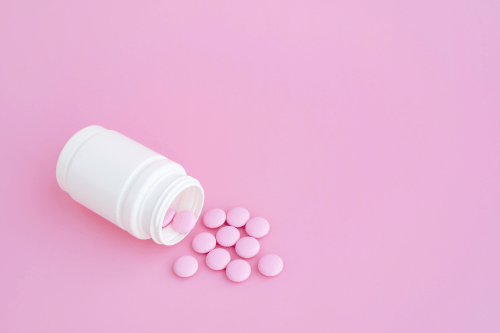
Common Uses of Seroquel
Seroquel is widely prescribed for:
Bipolar Disorder: Managing manic and depressive episodes.
Major Depressive Disorder: As an adjunct treatment to alleviate symptoms when other medications are insufficient.
Schizophrenia: Controlling symptoms like delusions and hallucinations.
Off-label Uses: Sometimes used for anxiety, insomnia, and other mental health conditions.
How Does Seroquel Work?
Mechanism of Action
Seroquel works by targeting neurotransmitters in the brain, particularly serotonin and dopamine. By regulating these chemicals, Seroquel helps stabilize mood, reduce agitation, and prevent the severe mood swings associated with bipolar disorder and other mental health conditions.
Side Effects of Seroquel
While effective, Seroquel is not without side effects, which can include:
Weight Gain: A common side effect, often leading to other health issues.
Excessive Drowsiness: The sedative effects can be strong, impacting daily activities.
Impaired Coordination: This can increase the risk of falls and accidents.
Increased Risk of Diabetes: Particularly with long-term use.
Movement Disorders: Such as tremors or rigidity.
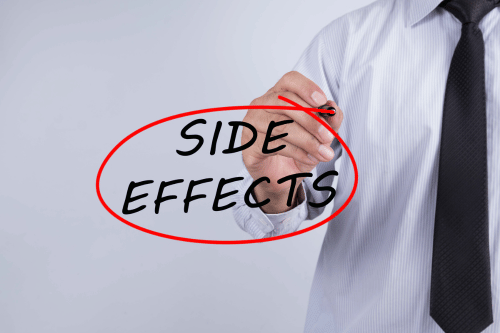
Understanding Alcohol’s Impact on Mental Health
What is Alcohol?
Alcohol, specifically ethanol, is a central nervous system depressant. It is one of the most widely consumed psychoactive substances globally, often used for its mood-altering effects. However, alcohol consumption, especially in large quantities, can have serious implications for mental and physical health.
Effects of Alcohol on the Brain
Alcohol impacts the brain by altering neurotransmitter activity, leading to impaired judgment, decreased coordination, and slowed reaction times. Chronic alcohol use can lead to long-term changes in brain chemistry, exacerbating mental health conditions like depression and anxiety.
Mental Health Symptoms Worsened by Alcohol
For individuals with existing mental health conditions, mental health symptoms alcohol can:
Exacerbate Depression: Alcohol is a depressant, and its consumption can worsen symptoms of depression.
Increase Anxiety: The initial calming effects of alcohol are often followed by a rebound effect, increasing anxiety levels.
Interfere with Medications: Alcohol can interact negatively with medications like Seroquel, reducing their effectiveness and increasing the risk of side effects.
The Dangers of Combining Seroquel and Alcohol
What Happens When You Mix Seroquel and Alcohol?
Mixing alcohol and Seroquel is dangerous because both substances depress the central nervous system. This combination can lead to severe sedation, respiratory depression, and an increased risk of overdose. The risks are particularly high for those with existing health conditions or those taking other medications.
Amplified Sedative Effects
Both Seroquel and both alcohol have sedative effects, but when combined, these effects are significantly amplified. This can result in:
Excessive Drowsiness: Making it unsafe to drive, operate machinery, or perform tasks requiring full attention.
Impaired Coordination: Increasing the risk of falls and accidents.
Severe Cognitive Impairment: Affecting the ability to think clearly, make decisions, and respond to situations.
Risk of Respiratory Depression
One of the most severe risks of mixing Seroquel and alcohol is respiratory depression. This condition occurs when the central nervous system is so depressed that it slows or stops breathing. This can be fatal if not immediately treated.
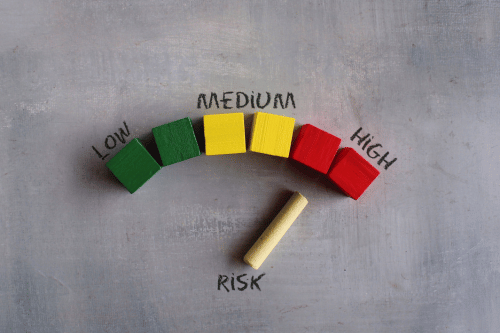
The Impact on Physical Health
Increased Risk of Liver Disease
Alcohol is metabolized by the liver, and excessive alcohol consumption can lead to fatty liver disease, hepatitis, or cirrhosis. When combined with Seroquel, which also has to be processed by the liver, the risk of liver damage is significantly increased.
High Blood Pressure and Cardiovascular Issues
Seroquel can cause an increase in blood pressure, and when combined with alcohol, this effect can be exacerbated. High blood pressure is a risk factor for cardiovascular diseases, including heart attacks and strokes.
Weight Gain and Metabolic Changes
Seroquel is associated with weight gain and changes in metabolism, which can lead to obesity and diabetes. Alcohol, high in empty calories, can further contribute to weight gain and complicate metabolic health.
The Psychological and Behavioral Risks
Impaired Judgment and Decision-Making
The combination of Seroquel and alcohol can severely impair judgment and decision-making abilities. This can lead to risky behaviors, such as driving under the influence, engaging in unsafe sexual practices, or making impulsive decisions that could have long-term consequences.
Potential for Substance Abuse
Individuals with a history of alcohol abuse or substance use disorders are at a heightened risk of developing a dependence on both Seroquel and alcohol. This can create a dangerous cycle of addiction, making it even more challenging to manage mental health conditions.
Worsening of Mental Health Symptoms
Instead of alleviating mental health symptoms, combining Seroquel with alcohol can worsen mental health disorders such as depression, anxiety, and bipolar disorder. This counteracts the benefits of the medication and can lead to a relapse or worsening of the underlying mental health condition.
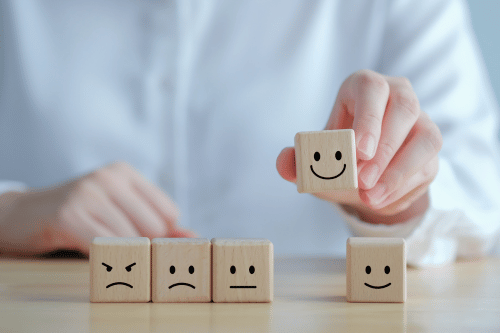
Why Some People Mix Seroquel and Alcohol
Misconceptions About Safety
Some people may mistakenly believe that since both Seroquel and alcohol are commonly used substances, mixing them is safe. However, this is a dangerous misconception. The interaction between the two can lead to serious health consequences.
Self-Medication for Mental Health Symptoms
Individuals struggling with mental health conditions may turn to drinking alcohol as a form of self-medication to cope with symptoms like anxiety or insomnia. However, this practice is harmful and can interfere with the effectiveness of prescribed medications like Seroquel.
Social and Cultural Factors
In some cases, social drinking is ingrained in cultural practices, and individuals may feel pressured to consume alcohol even while on medication. Understanding the risks can help individuals make informed decisions about their health.
Recognizing the Signs of Danger
Symptoms of Seroquel and Alcohol Overdose
An overdose from mixing Seroquel and alcohol can manifest through symptoms such as:
Severe Drowsiness: Difficulty staying awake or responding to stimuli.
Slow or Irregular Breathing: Indicating respiratory depression.
Loss of Consciousness: Inability to wake up, which requires immediate medical attention.
Confusion or Disorientation: Severe cognitive impairment.
When to Seek Emergency Help
If you or someone you know experiences these symptoms after mixing Seroquel and alcohol, it is critical to seek emergency medical help immediately. Respiratory depression and loss of consciousness are life-threatening conditions that require prompt intervention.
Preventing the Dangers of Mixing Seroquel and Alcohol
Avoiding Alcohol Consumption Altogether
The safest approach for individuals prescribed Seroquel is to avoid combining alcohol with the medication altogether. This eliminates the risk of dangerous interactions and ensures that the medication can work effectively without interference.
Consulting a Healthcare Provider
Before making any changes to your alcohol consumption habits, it is essential to consult with a healthcare provider. They can provide personalized advice based on your medical history, current medications, and mental health condition.
Education and Awareness
Educating yourself and others about the dangers of mixing Seroquel and alcohol is a key step in prevention. Understanding the risks and potential health consequences can help individuals make informed decisions about their health.
The Role of Healthcare Providers

Guidance on Medication Management
Healthcare providers play a critical role in managing the risks associated with Seroquel and alcohol. They can offer guidance on how to take medications safely, monitor for side effects, and provide alternatives if alcohol consumption is a concern.
Monitoring for Adverse Effects
Regular check-ups with a healthcare provider can help monitor for adverse effects of Seroquel, especially if there is a risk of alcohol interaction. This can include blood tests, liver function tests, and mental health assessments.
Support for Alcohol Addiction
For individuals struggling with alcohol addiction, healthcare providers can offer resources and support for treatment. This may include referrals to addiction specialists, counseling services, or medication-assisted treatment.
Alternatives to Alcohol While on Seroquel
Non-Alcoholic Beverages
For social situations where alcohol is typically consumed, non-alcoholic beverages can be a safe alternative. Many non-alcoholic beers, wines, and mocktails offer the same social experience without the risk of harmful interactions.
Mindfulness and Relaxation Techniques
Instead of turning to alcohol for relaxation, consider mindfulness and relaxation techniques such as meditation, deep breathing exercises, or yoga. These practices can help manage stress and anxiety without the need for substances.
Therapeutic Support
If alcohol is being used as a coping mechanism for mental health symptoms, seeking therapeutic support can provide healthier strategies for managing these challenges. Cognitive-behavioral therapy (CBT) and other forms of counseling can be effective in addressing the root causes of alcohol use.
Frequently Asked Questions About Seroquel and Alcohol
Can Seroquel Be Used for Alcohol Withdrawal?
While Seroquel is not typically used for alcohol withdrawal, some healthcare providers may prescribe it off-label to manage symptoms of anxiety or insomnia during withdrawal. However, this should only be done under strict medical supervision.
What Should You Do If You Accidentally Mix Seroquel and Alcohol?
If you accidentally mix Seroquel and alcohol, monitor yourself for symptoms of overdose or severe side effects. If you experience any concerning symptoms, seek medical help immediately.
Is It Ever Safe to Drink Alcohol While Taking Seroquel?
There is no safe amount of alcohol to consume while taking Seroquel. Even small amounts can lead to dangerous interactions. It is best to avoid alcohol entirely while on this medication.
How Does Seroquel Affect Alcohol Awareness?
Seroquel can impair judgment and decision-making, which may affect your awareness of how much alcohol you are consuming and the risks associated with it. This makes it even more important to avoid drinking while on Seroquel.
What Are the Long-Term Risks of Mixing Seroquel and Alcohol?
Long-term mixing of Seroquel and alcohol can lead to chronic health issues, including liver disease, cardiovascular problems, and worsening mental health symptoms. It can also increase the risk of developing a substance use disorder.
Conclusion
Mixing Seroquel and alcohol is a dangerous combination that poses significant risks to both physical and mental health. From severe sedation and respiratory depression to impaired judgment and increased risk of chronic diseases, the consequences can be life-threatening. For those prescribed Seroquel, it is crucial to avoid alcohol consumption and consult with healthcare professionals to ensure safe and effective treatment. Your health and well-being depend on making informed decisions and taking proactive steps to avoid the serious dangers of combining these substances.
This comprehensive guide provides a detailed exploration of the risks associated with mixing Seroquel and alcohol. By following the advice provided and prioritizing your health, you can avoid the severe consequences of this dangerous combination.


